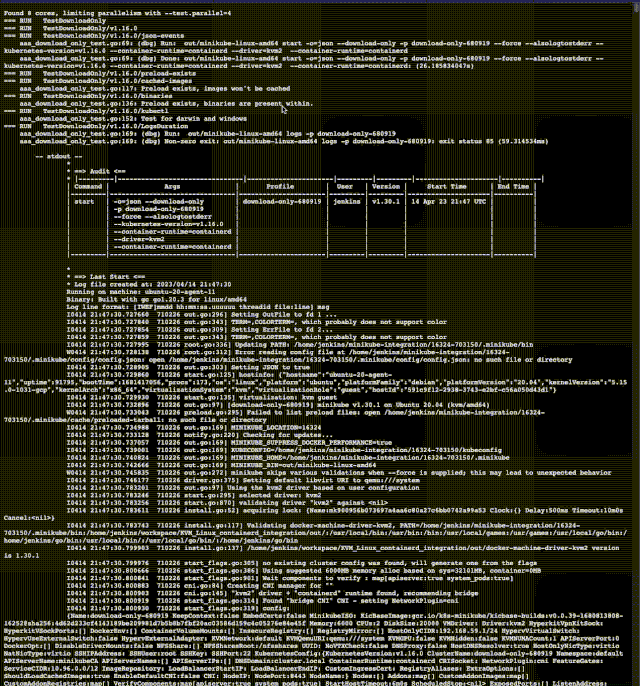Converts golang test results from json to user-friendly html.
Example test logs: before, after
- foldable test results.
- open each subtest result in a new window.
- sort test by passed/failed/skipped.
- sort test by execution duration.
- search in each test result separately.
- summary table
- generate json summary
- first install gopogh
go install github.com/medyagh/gopogh/cmd/gopogh@latest
- run your integration test and convert it to json
go tool test2json -t < ./your-test-logs.txt > ./your-test-log.json
- run gopogh on it
TEST_PR_NUMBER=1313
TEST_NAME="KVM Linux"
GITHUB_REPOSITORY="github.com/kubernetes/minikube/"
GITHUB_SHA=1234567890
gopogh -in ./your-test-log.json -out_html ./report/testout.html -out_summary ./your-test-summary.json -name "${TEST_NAME}" -pr "${TEST_PR_NUMBER}" -repo "${GITHUB_REPOSITORY}" -details "${GITHUB_SHA}"
I lead the minikube team and due to growing number PRs and number of integration tests on multiple OS, drivers, container runtimes. Each test failure on a PR generated tens of thousands of lines for raw logs. (with system-level postmortems) that made reviewing PRS slow and hard ! so during a hackathon, I built gopogh (short for go pretty or go home) that converts
Contributions are welcome. Run tests:
make test
open output.html


